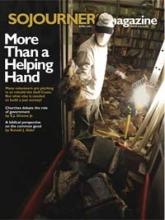Every once in a while, one becomes profoundly and spiritually bewildered. In the midst of shaping the sandcastle of your life—adding little rooms and windows with a variety of views—you suddenly scoop a little too deep, and brittle-cold sea water rushes in. It covers everything. It dulls all of your neat shovel-cut edges. Glancing up from the quotidian architecture of your life, you confront the awful expanse of the sea: its green water, its endless horizon.
Bewildered. To be led astray, to become lost in pathless places, to be confounded for want of a plain road, says the Oxford English Dictionary. To return to a wild place, become feral, uncultivated, undomesticated. To enter a desert. Not controlled by an outside force. One whose neck is not bowed under a restraint. Bewildered.
Bewilderment is not momentary confusion or uncertainty. It is to become fundamentally displaced. Trauma may bring it on—illness or the death of a parent, companion, or child. Prolonged spiritual practice may bring it on. Accumulated, unattended sorrow may bring it on.
In many religious mystical traditions, bewilderment is seen as a stage of spiritual development. Thomas Merton, Trappist monk and mystic, described one aspect of the experience in this way to his novices: "We get into total bewilderment, we lose our own hearts. They say we are no longer able to get in contact with the best of our own being." All that we thought we knew about ourselves—even all the good things we are and do—vanishes.
Sufi teacher Pir Vilayat Inayat Khan writes in his book In Search of Hidden Treasure, "We came whirling out of nothingness scattering stars like dust. The stars made a circle and in the middle we dance. Turning, and turning it sunders all attachment.
Read the Full Article
